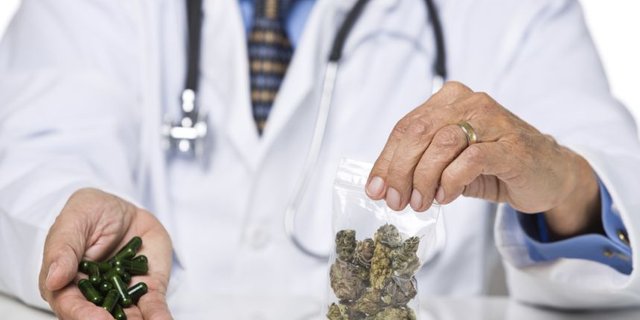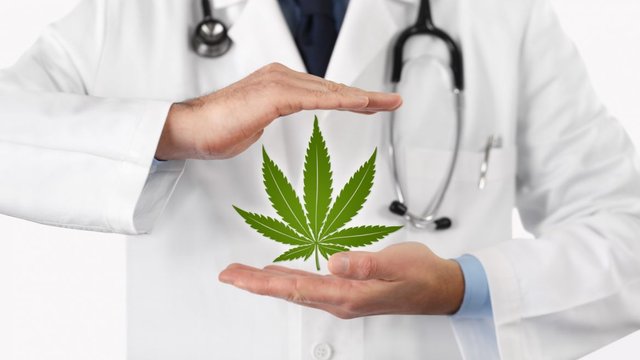
Hey steemers!
The reason that cannabis is so effective medically is directly related to its ability to interact with receptors in the body that inhibit inflammation and prevent disease. Cannabis does it so well that little drugs can't compete with its level of effectiveness that causes no side effects. Here are five diseases that have proven to be more responsive to cannabis than drugs, however, there are many studies today that could reveal dozens more.
Many researchers have noted that there has been "insufficient" data for decades to determine whether smoking cannabis was safe or effective in treating pain symptoms and preventing diseases. The main reason for the lack of data was related to the National Institute on Drug Abuse, which was the only source of cannabis for research and they blocked the most serious studies because of pharmaceutical companies.
Now decades of propaganda are being reversed because scientists and the public are exposed to the true potential of cannabis and its ability to cure and prevent disease. There are cannabis strains that can treat various medical conditions !
Almost all drugs have toxic, potentially life-threatening effects. Marijuana does not have these effects. There is no evidence in advanced medical literature that there is any mortality caused by cannabis ... In strict medical terms cannabis is much safer than many foods we consume daily ... Cannabis, in its natural form, is one of the safest active therapeutic substances known.
It has been proven that these 5 diseases respond better to cannabis than prescription drugs
1.Cancer
Cannabinoids, the active components of cannabis, inhibit the growth of tumors and also kill cancer cells.Tetrahydrocannabinol (THC), the main psychoactive component (or cannabinoid) of the cannabis plant, targets cannabinoid receptors that play a very similar role to the endocannabinnoids, which are naturally occurring cannabinoids in the body that activate these receptors.
Researchers have now found that cannabidiol has the ability to "disable" the gene responsible for metastasis in an aggressive form of cancer. Above all, this substance does not produce the psychoactive properties of the cannabis plant.
A Spanish team, wanted to see if they could prevent a form of cancer (glioblastoma multiforme) from developing by cutting off its blood supply. The multi-form globalistoma is one of the most difficult cancers to treat: it rarely responds to medical intervention, especially to conventional methods that mainly poison and destroy cells such as radiotherapy, chemotherapy and surgery.
Genes associated with the growth of blood vessels in tumors by the production of a chemical called vascular endothelial growth factor (VEGF) reduce their activity when exposed to cannabinoids. Cannabinoids stop the production of VEGF by producing ceramide.

2. Fibromyalgia
More and more patients with fibromyalgia find that cannabis relieves them. Here are the results of a recent online survey of over 1300 topics conducted by The National Pain Foundation. Of those surveyed, 379 reported using therapeutic cannabis. Sixty-two percent of them rated the substance as "very effective" in treating their condition.
In comparison, among fibromyalgia patients who had used Duloxetine, only eight percent rated the drug as "very effective," and sixty percent said it "did not work." Among those who had used Pregabalin, ten percent said the drug was "very effective", compared to 61 percent who did not notice any relief.
Clinical research has demonstrated inhalation efficacy in subjects with difficult-to-treat refractory pain, there are some preliminary clinical trials to prove the effectiveness of cannabis. Patients report that cannabis could be more effective than existing therapies. I think that should encourage researchers to look closely at clinical trials and explore them in a much more detailed way.
Some researchers have already done so. In 2006, German scientists reported that oral THC significantly reduced both chronic and experimentally induced pain in patients with fibromyalgia. The trial participants received daily doses of 2.5 to 15 mg THC, but received no other pain medication during the study. Of the participants who completed the trial, all experienced significant reductions in daily pain and electronically induced pain.
More recently, Spanish researchers have evaluated the use of cannabis treatment for fibromyalgia. A quick review of the results indicates why so many fibromyalgia patients prefer inhalation to pills.
The investigators said, "Cannabis use has had beneficial effects on some fibromyalgia symptoms ... Two hours after consuming it, Visual Analog Scale (VAS) results showed a statistically significant reduction in pain and stiffness, improved relaxation, and increased drowsiness and a sense of well-being. "

3. Épilepsie
The most common approach to treating epilepsy is to prescribe antiepileptic drugs. The commonly prescribed drugs are clonazepam, phenobarbital and primidone. Many drugs amplify side effects such as fatigue and loss of fatigue. Medications to treat epilepsy can also predispose people to depression or psychosis.
There is strong evidence that cannabinoids are anticonvulsant and empirical evidence in children provides conclusive evidence that cannabinoid therapy may be the most effective treatment for epileptics.
The cannabinoid system regulates seizure frequency and duration in a model of temporal lobe epilepsy, the data not only show the anticonvulsant activity of cannabinoid application exogenously but suggest that the endogenous cannabinoid increases the lifting of seizure and duration via activation of the CB1 receptor. By demonstrating the role of the endogenous cannabinoid system in the regulation of epileptic activity, these studies define the role of the endogenous cannabinoid system in the modulation of neuroexcitation. The endogenous cannabinoid system thus provides protection against acute excitotoxicity in neurons of the central nervous system.
Anticonvulsant medications have potentially serious side effects, including bone softening, reduced red blood cell production, swelling of the gums, and emotional disturbances. Other occasional side effects include uncontrollable rapid movements of the eyes, loss of motor coordination, coma and even death. In addition, these drugs are far from ideal because they completely stop seizures in about 60% of patients. Numerous anecdotal reports and case studies of patients indicate that cannabis helps control seizures. It has been shown that cannabis-like synthetic products prevent seizures. Patients report that they manage to wean themselves off prescription drugs, and no longer have seizures if they have a regular supply of cannabis.
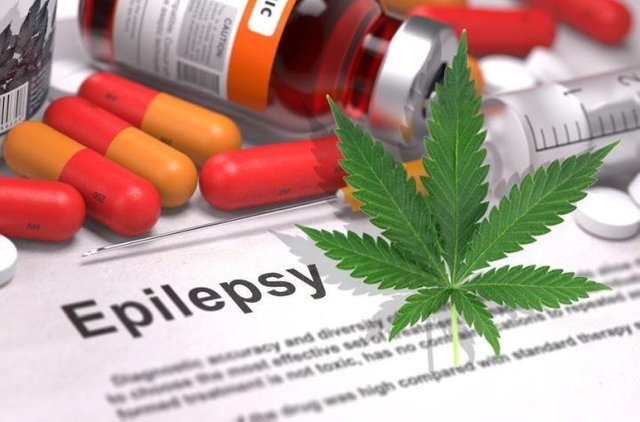
4. Multiple sclerosis
The US Food and Drug Administration has alerted the public that patients diagnosed with multiple sclerosis (MS) have developed serious brain infections after taking the drug Gilenya (fingolimod).
Other medications like Tysabri are antibodies that block some of the white blood cells that cause MS when they attack the nerves. The problem is that they would make patients vulnerable to infections. Biogen and Elan removed them from the market after two cases of brain disease were confirmed in patients taking this medication. A month later, a third case was confirmed. The FDA has authorized the release of this drug in 2006 after stating that the benefits outweighed the risks, no doubt thanks to the help of large pharmaceutical companies.
GW received government authorization in 1998 to develop herbal cannabis extracts. Their flagship product Sativex is a highly defined extract containing a mixture of approximately 50-50 CBD and THC that has been approved by regulatory agencies in the UK and more than 20 other countries to treat pain and spasticity. Multiple sclerosis. Some forms of medical cannabis have been proven to relieve some symptoms in multiple sclerosis patients, according to the guidelines published in the journal Neurology.
In a 2011 study, Israeli researchers have shown that CBD helps treat MS symptoms, such as preventing immune cells from transforming themselves and attacking the insulating covers of nerve cells in the spinal cord. After inducing a condition similar to MS in mice, partially paralyzing their limbs, the researchers injected them with CBD. The mice responded by regaining movement, first with shaking their tails, and then started walking without limping.
The researchers found that mice treated with CBD had significantly less inflammation of the spinal cord than their untreated counterparts. In another study of Neuroscience, researchers used Experimental Allergic Encephalomyelitis (EAE), an animal model. of MS, and found that cannabinoids reduced microglia activation, mitrotyrosine formation, cellular infiltration, oligodendrocyte toxicity, myelin loss, and axonal spinal cord white matter deterioration mice and decreased clinical score when administered before or after the onset of the disease.
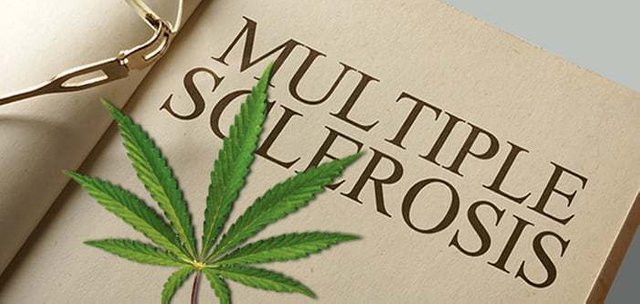
5. Attention Deficit Disorder (ADD) and Attention Deficit Hyperactivity Disorder (ADHD)
The normal treatment procedure for a child diagnosed with ADD / ADHD is treatment with methylphenidate, better known as Ritalin. For the child diagnosed with ADD / ADHD, the side effects of using Ritalin are many, including psychosis (abnormal thoughts or hallucinations), sleep disturbances, upset stomach, diarrhea, headaches , hunger cut (leading to weight loss) and oral dryness. In some cases, the use of Ritalin has led to death. Death can occur as a result of ruptured blood vessels, heart failure and fever. Violence related to amphetamine use is the leading cause of death. Violent drug trends can develop even after regular use.
Children are dying at unprecedented rates of drugs like Ritalin. An excellent documentary named Generation Rx talks about troubling details and chemical abuse on children by conventional medicine. The prescription of psychiatric medications en masse, especially in children, is changing their mind, their body and their life in general.
While some adopt the preconceived idea that cannabis accentuates ADD / ADHD, a large majority of cannabinologists are convinced that cannabis and cannabinoids have significantly improved the living conditions of people with ADD / ADHD with much less effect undesirable side effects than the stimulant drugs used in the treatment of ADHD.
The results in the treatment of ADD / ADHD with cannabis are often spectacular. Patients give the treatment notes ranging from A to D. Almost all ADHD patients who have used therapeutic cannabis say that it has helped them to concentrate on reading and to be more focused in their intention instead of thinking about several things at the same time, it has allowed them to to stay focused on a task and that facilitated their homework.
Why would someone want to give their child an expensive pill ... with unacceptable side effects while he or she could just go to the yard to pick some leaves from the plant and make some tea ..." "Cannabinoids are a very reliable treatment alternative for treating ADD / ADHD children.
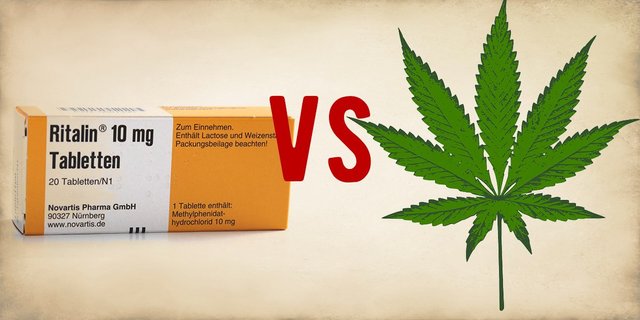
Explanation of pharmaceutical companies' opposition to cannabis:
The real problem with cannabis authorization is from an economic point of view ... If cannabis was approved for use in the entire ADD / ADHD market alone, it could have a significant impact on sales. estimated at around $1 billion per year of traditional pharmaceuticals to treat ADD / ADHD.
